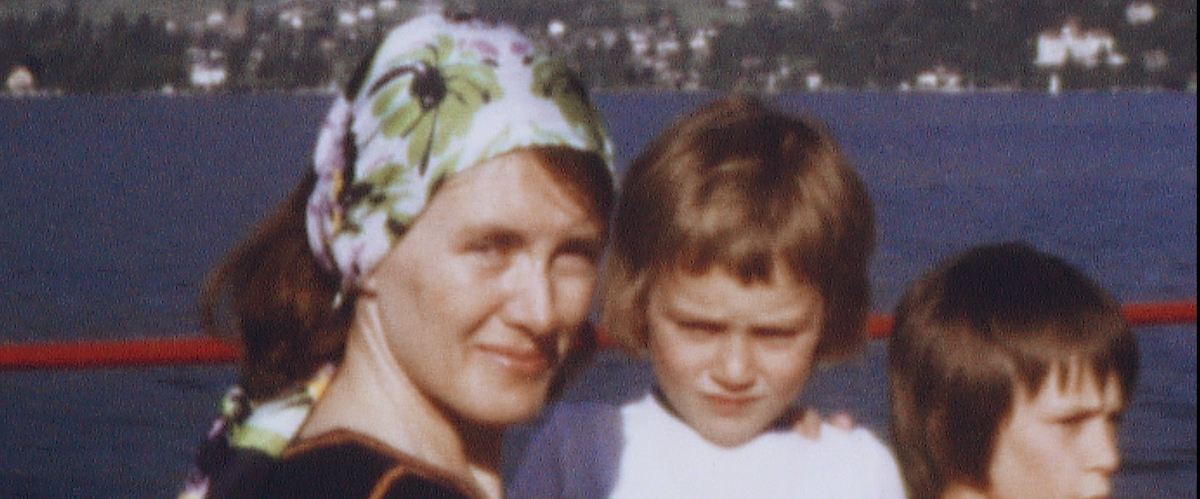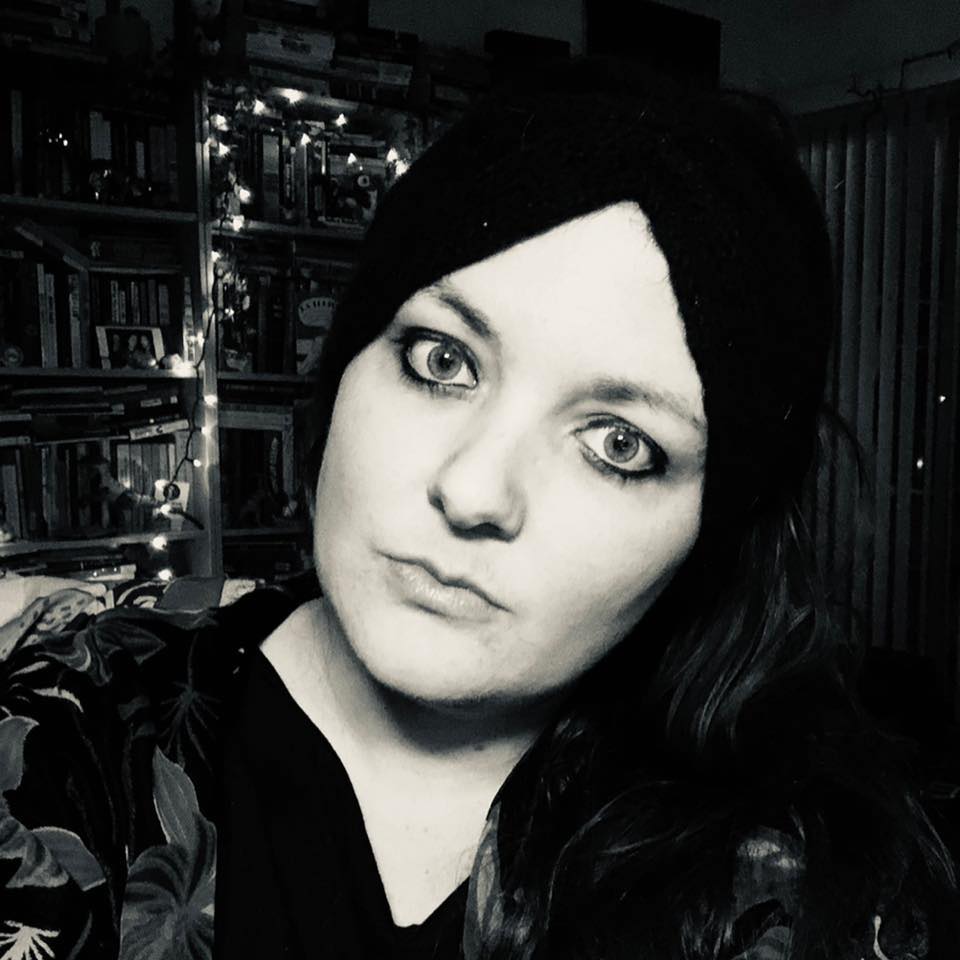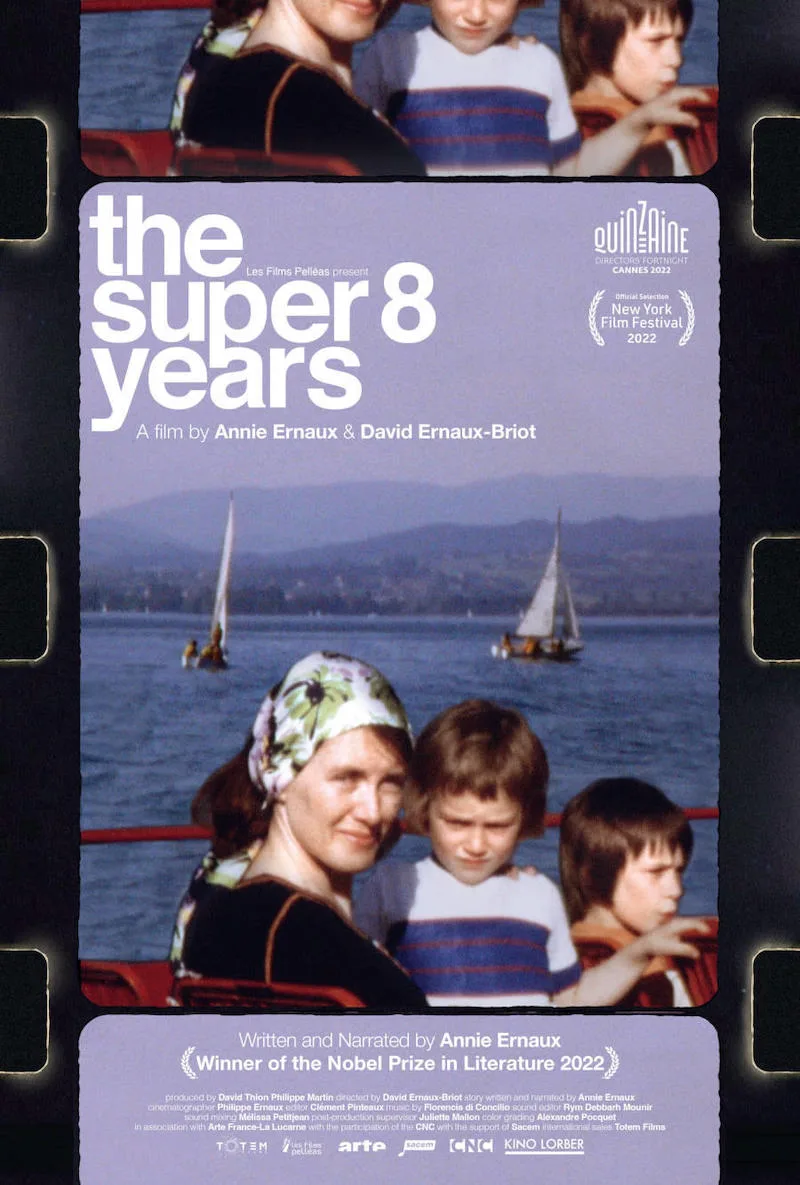Nobel Prize-winning writer Annie Ernaux is known for her blending of memory with historical and sociological context. In unearthing home movies shot by her ex-husband Phillipe during the last decade of their marriage from roughly 1972 until 1981, Ernaux and her son David Ernaux-Briot have crafted a visual odyssey in much the same vein with their film “The Super 8 Years.” But although it is extremely personal in tone, this one-hour doc has more in common with a narrated slideshow than it does traditional nonfiction cinema.
Watching this film just a day after spending nearly five hours watching Jonas Mekas’ 2000 film “As I Was Moving Ahead Occasionally I Saw Brief Glimpses of Beauty” made for an interesting contrast. Both films mine home movies for their beauty and their intimacy. However, where Mekas largely allows the images to speak for themselves, Ernaux’s film relies heavily on her writerly narration. Ernaux does not just describe every image, like in her novels, she adds a layer of self-reflection that can only come from a distance. Where Mekas purposely focuses his films on moments of happiness, Ernaux insists on breaking the spell cast by the images, describing the pain beneath the idyllic surfaces.
Both films speak to the nature of the artists who made them. But while it is admirable that Ernaux brings the same raw honesty of her writing, the experience of such heavy narration often undercuts the documentary as a whole, rendering what could have been cinematically transcendent, a mere intellectual exercise.
Much of the imagery in “The Super 8 Years” was shot by Phillipe rather than Ernaux or David, whose lives at this time are subjects of his gaze, which becomes a key element of Ernaux’s narration. For David, this project allows him to revisit his childhood with the eyes – and reflection – of an adult, while for Ernaux she can bring agency and depth to her images of herself. During these years Phillipe’s studies and jobs brought them to Annecy, where Ernaux worked as a teacher, hiding both her wild desire to write and her actual writing from everyone in the family unit.
As intellectual, non-conformist leftists in a post-May 1968 France, both Ernaux and her husband aimed to give their children a life filled with more adventure and consciousness-raising than their own childhoods had afforded them. Captured along with everyday family life, Christmases, and birthdays, there is footage of family trips, including a bourgeois stay at a resort in Morocco, a trip to soviet Chile before a US-backed coup, Stalinist-Maoist Albania, pre-Thatcher England, and even Soviet Moscow. With each trip, Ernaux both describes their intentions at the time, but also the historical and cultural contexts she may have only understood long after their visits ended. The context and reflections are interesting but sometimes veer towards a pretension that is uniquely ingrained in well-meaning white liberalism.
Phillipe’s main goal in all that he filmed was to contain things “you will never see twice,” but he also had a penchant to film the same objects and surroundings every time they moved residences as if to maintain some semblance of control. This same feeling is found in his images of the children, which Ernaux describes as a “happening” – pointedly using the same word there as the title of her novel about her abortion, recently adapted by Audrey Diwan. She describes the familial images as capturing happiness tinged with violence. But due to the nature of such imagery, that violence remains beneath the surface.
Although its runtime is a brief 60 minutes, “The Super 8 Years” clearly contains intense emotions for the filmmakers. However, despite the breadth of world events captured in the film, it remains almost too deeply personal and does not often resonate on a universal level. Fans of Ernaux’s style of writing will likely find much more to enjoy here than viewers less familiar. The compact documentary is ultimately more an exercise for the filmmakers than it is a truly rewarding cinematic experience for the audience.




















